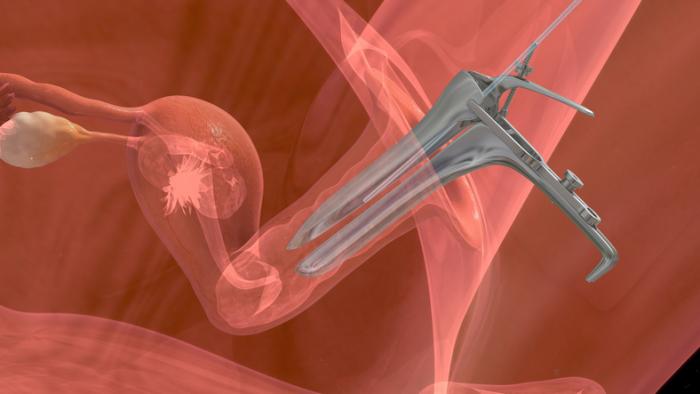
Surrogates, also known as gestational carriers are incredible people who passionately give the gift of family to those struggling to conceive. Thanks to advancements in fertility treatments, this has made surrogacy much more accessible, ethical, and legally sound for families.
Read on to understand the role of IVF in surrogacy and how it is making family-building a smoother process for everyone involved.
In Vitro Fertilization (IVF) is a form of Assisted Reproductive Technology (ART) that has been able to bring the dream of parenthood into the reality for families across the world. This treatment is essential when it comes to Gestational Surrogacy as it allows the surrogate to carry a child in which they have zero genetic connection with.
By leveraging IVF, surrogates are able to carry a pregnancy in which they do not use their own eggs. IVF in short, consists of combining eggs via egg retrieval and sperm in a lab to create embryos. The genetic material of the embryo can come from either a donor or the intended parents, depending on the situation.
Gestational surrogacy differs from traditional surrogacy as it utilizes modern day fertility treatment. Traditional surrogacy is much less common as it depends on the surrogate's eggs. At Hatch, we do not service traditional surrogacy as it poses many ethical and legal challenges for all parties involved.
In Vitro Fertilization is the process of taking both eggs and sperm and combining these specimens in an embryology lab to fertilize into embryos. Once the embryos are fertilized, tested, and confirmed healthy, they are ready for implantation, also known as an embryo transfer. In this article, we cover the IVF process for surrogates:
Continue reading to understand each step in detail and what to expect while undergoing IVF as a gestational carrier.
For the safety and well-being of the surrogate, child, and intended parents, surrogates are extensively screened to ensure IVF and pregnancy are safe to pursue. There are many surrogacy disqualifications that may prevent someone embarking on the beautiful journey of surrogacy, though safety is the top priority.
Surrogates can expect a medical screening to confirm whether or not they meet the requirements and qualifications for surrogacy. Typically this includes the evaluation of previous birth records and meeting criteria established by the chosen IVF physician. As intimidating as this part may seem, our team at Hatch has been through the process themselves and will guide you through each step with empathetic support.
Finally, once medically cleared, surrogates are ready to match with their intended parents! This is one of the most exciting aspects of the journey (next to the delivery room). At Hatch, our matching team works closely with surrogates and intended parents to curate the best possible match based on the preferences of each party. Don't worry, if it's not a prefect match, each party has the choice to continue searching for the relationship they desire.
After matching it is time to begin IVF treatment toward pregnancy. An appointment with the chosen IVF physician will kick off the IVF journey, where surrogates can expect to begin treatment. Fertility medications are used for surrogates undergoing IVF to ensure optimal chances of successful conception. There are different kinds of fertility drugs, as well as different dosages that may be prescribed for IVF. This is dependent on many factors, such as the type of IVF cycle being performed.
At the beginning of your IVF cycle, surrogates will receive a shipment containing your IVF calendar and fertility medications. This IVF calendar will cover everything you need to know about the following:
When you receive your shipment of IVF medications, make sure you have everything you need. Check the medications you’ve received with the packing slip and your IVF calendar. If you’re unsure or have questions, please let your clinical coordinator at your IVF clinic and your coordinator at Hatch know as soon as possible.
Here's an example of your IVF calendar. Note that medications and timing will be tailored to your unique treatment plan:

As a gestational surrogate, you'll also need to continue checking your medication supply weekly to ensure that you always have enough medication and unopened backups of medication that will be continued after the embryo transfer takes place.
With IVF, a lot of shots are generally required, primarily progesterone and estrogen. With a surrogate pregnancy, these hormones are necessary for a successful pregnancy, and also critical to sustain the pregnancy until a certain point in time when the doctors will instruct you to start weaning off of the medications. Missing any medications can affect the outcome of the cycle and surrogacy pregnancy.
Every time you go to the IVF doctor and/or the monitoring clinic (if your IVF clinic is far from your home) you will likely have a vaginal ultrasound and they will draw your blood to test your hormone levels. There are typically 3-5 visits in total throughout the duration of IVF treatment.
The embryo transfer is another huge milestone along the surrogacy journey! As mentioned before, this is where the intended parent's embryo is implanted into the surrogate in hopes of achieving pregnancy. Ideally, a medically screened surrogate, who followed all IVF protocol, should have high chances of success. Continue reading to understand how to best prepare for the embryo transfer, what the procedure entails, and what you can expect after transfer.
If you’re preparing for your first embryo transfer as a surrogate, don’t worry -- you’ll be in the most experienced hands. The embryo transfer will occur three to five days after the intended mothers' or donors' egg retrieval, or longer if the intended parents are using frozen embryos.
As you prepare for your embryo transfer, make sure you:
For more specific information about how to best prepare for your embryo transfer, talk to your reproductive endocrinologist.
While doing the above cannot totally ensure you a successful conception and pregnancy, have faith and trust in your fertility doctors. You’re in capable, experienced hands, and it’s important to have trust in the process!
When your body and the embryo are ready for the embryo transfer, you'll undergo a very simple procedure without anesthesia. Most often the procedure takes 15 minuets or less. The embryos are microscopic, and the transfer uses a speculum and a guided vaginal ultrasound to guide the catheter to implant the embryos.

After the procedure, you'll need to rest at the doctor’s office for about 20 minutes. When you leave, you’ll be advised to continue bed rest at home or at a nearby hotel, depending on how far away you reside.
The bedrest following the embryo transfer is one to three days, depending on the doctor’s protocol. Your partner is welcome at the transfer. After the transfer, it’s important to keep your activities quiet and light to help implantation.
For surrogates outside of California, you may need to travel for the embryo transfer. If this is the case, your travel expenses will be fully covered by the intended parents and you'll receive allowances for your stay.
Surrogates can expect thorough guidance and care after an IVF embryo transfer. Your fertility clinic will always offer you detailed instructions after appointments, with the goal of making you feel comfortable and confident that you are taking care of yourself during the days leading up to the post-embryo transfer pregnancy test.
Some doctors recommend 24-hour bed rest post-procedure, while other sources recommend relying on low-impact movement to cause blood flow to the uterus with the hopes of increasing the chance of pregnancy. However, it’s important to avoid strenuous exercise, sex, or taking baths.
Maintain a positive outlook on your embryo transfer procedure, and behave as if you’re pregnant -- food and all!
Although it’s tempting to take a pregnancy test a few days after your embryo transfer, try to abstain -- fertility clinics strongly recommend you wait the typical two-week period to ensure that you receive accurate results and can manage the emotions that are normal during this process.
Clinics recommend a two-week wait because taking a pregnancy test too soon after the embryo transfer often produce false results. This happens because the hormone used to measure pregnancy within a pregnancy test, referred to as hCG, can vary in levels depending on your phase within the fertility journey. For instance, very early pregnancy often doesn’t result in much natural hCG production, causing you to get a distressing false-negative result.
Once your two weeks have passed, you can take your first pregnancy test after the embryo transfer. To get a more accurate reading, your fertility clinic will book an appointment two weeks after the transfer to perform a blood test to determine the pregnancy result.
The surrogacy success rate of a qualified surrogate candidate undergoing IVF is as high as 75% and increases to about 95% once the surrogate is pregnant. At Hatch, we are proud of our 99%+ success rate, ensuring intended parents go home with a baby when pursuing family via surrogacy.
Are you interested in making intended parent's dreams come true? If you are considering becoming a surrogate, look no further. Hatch is recognized as one of the best agencies in the United States, serving families across the world.
Hatch surrogates can expect top tier compensation while receiving unwavering support every step of the way. Our team has either been a surrogate or intended parent themselves, so we deeply understand what you are going through. Hatch also has an in-house clinic, offering medical fertility expertise.
Still wondering why Hatch? Take our surrogate's words for it. Here we are passionate about family and welcome you to be part of it. Please don't hesitate to contact us with any questions or concerns you may have throughout this time!
These Stories on Surrogacy - For Surrogates

.png?width=150&height=150&name=Open-Door-Badge_Beyond-Inclusion-LGBTQ-101%20(1).png)

